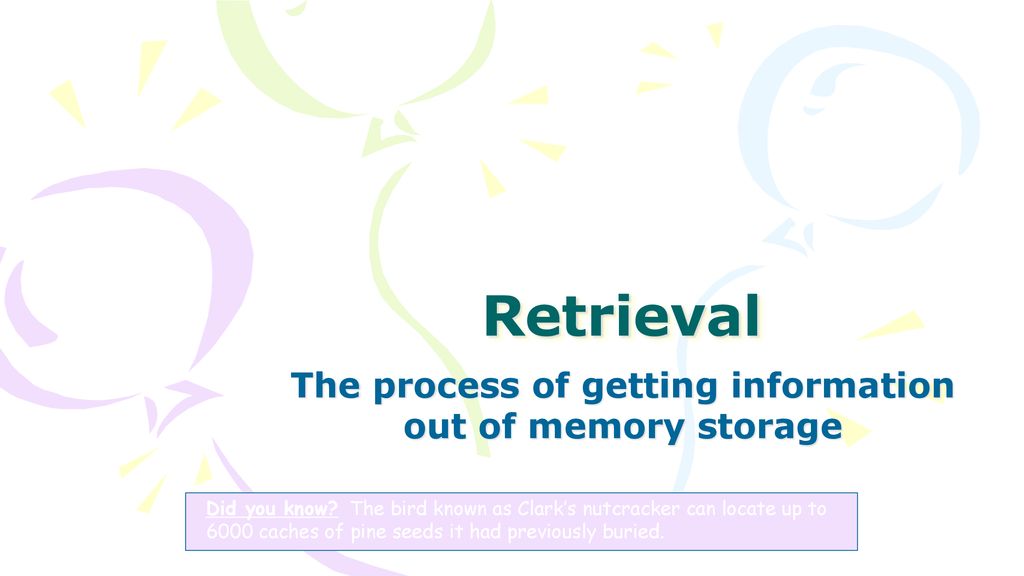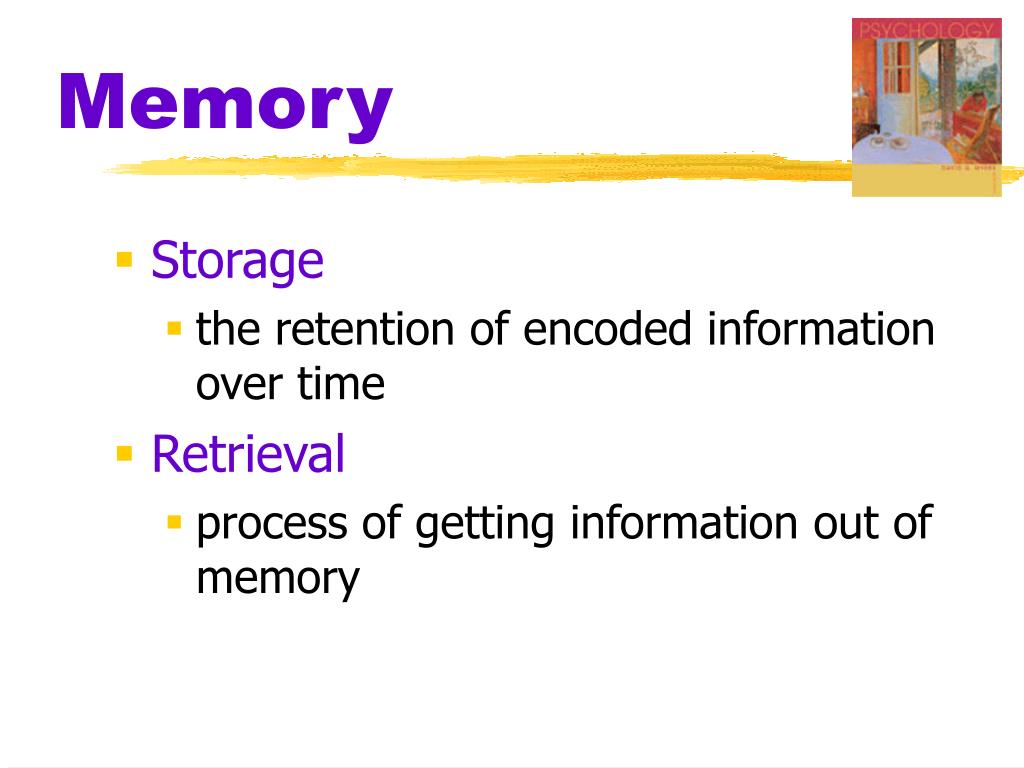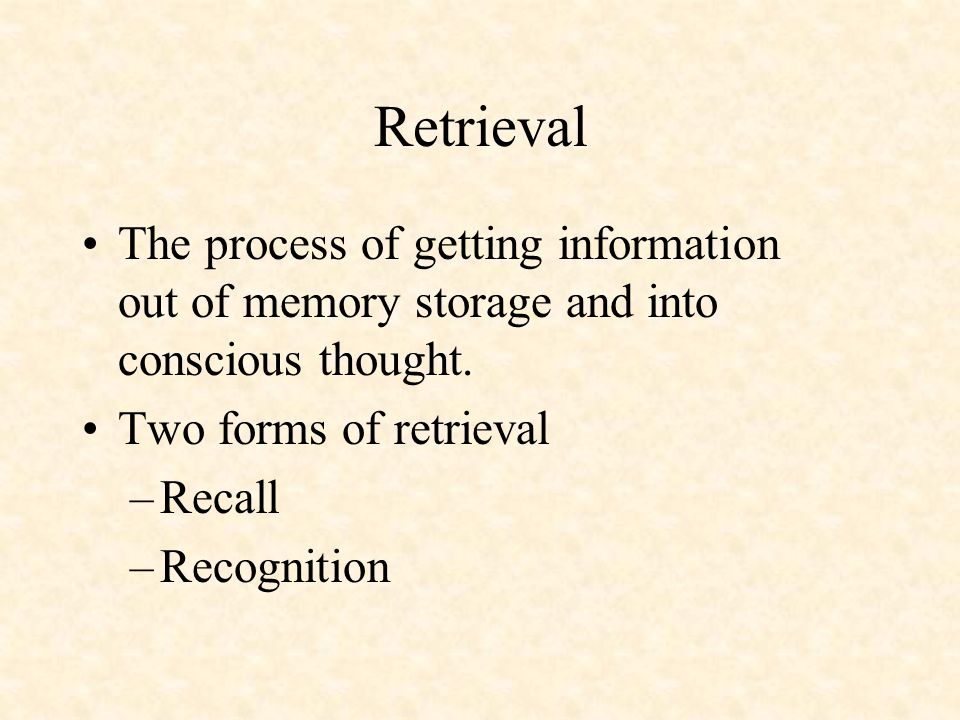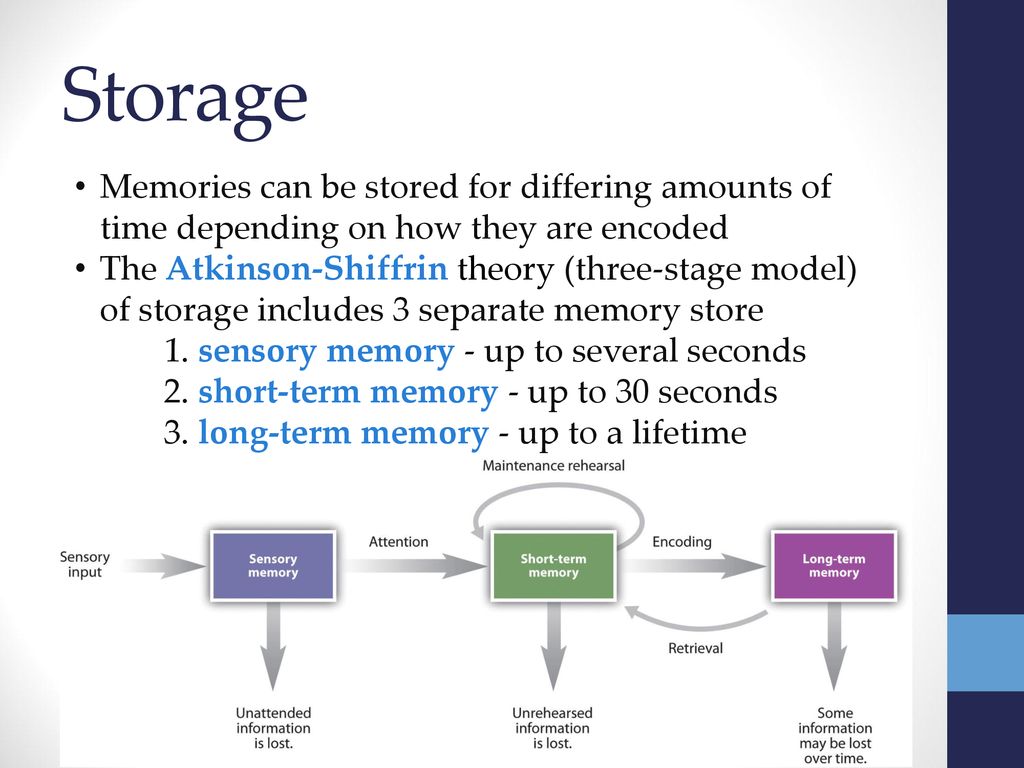The Act Of Getting Information Out Of Memory Storage

The human brain, a universe contained within our skulls, holds a lifetime of experiences, facts, and emotions. Yet, the act of retrieving information from this vast internal archive – memory retrieval – remains one of the most complex and fascinating puzzles in neuroscience.
Sometimes a name escapes us, a date eludes our grasp, or a crucial detail vanishes from our recollection. The process of how we access, recover, and reconstruct these stored memories is a delicate interplay of neural circuits, biochemical processes, and psychological factors.
This article delves into the science behind memory retrieval, exploring the mechanisms involved, the challenges researchers face in understanding it, and the potential implications for treating memory-related disorders and enhancing cognitive function.
The Neuroscience of Remembering
At its core, memory retrieval is a reconstructive process, not a simple replay of stored information. When we recall a memory, we don't just pull up a perfect recording; instead, our brains piece together fragments of information stored across different brain regions.
Key brain areas involved in this process include the hippocampus, crucial for forming new memories and initially retrieving them; the prefrontal cortex, which orchestrates the retrieval process and monitors the accuracy of recalled information; and the amygdala, which adds emotional context to memories.
According to a study published in Neuron, neural activity patterns during encoding are reactivated during retrieval. This reactivation helps to reinstate the original experience, allowing us to consciously access the stored information.
Synaptic connections play a vital role. Memories are thought to be encoded through the strengthening of connections between neurons, making it easier for those neurons to fire together again in the future when triggered by a retrieval cue.
This process, known as long-term potentiation (LTP), strengthens these connections, making recall more efficient. However, the strength of these connections can weaken over time, leading to forgetting.
Factors Influencing Retrieval Success
Memory retrieval is not always a foolproof process. Numerous factors can influence whether or not we can successfully retrieve a memory, including the strength of the original encoding, the presence of retrieval cues, and the context in which we are trying to remember.
Encoding specificity is a key concept. Memories are more easily retrieved when the retrieval context matches the encoding context. For example, you might remember something better in the place you first learned it.
Stress and anxiety can also significantly impair memory retrieval. According to research from the National Institute of Mental Health (NIMH), stress hormones like cortisol can interfere with the activity of the hippocampus, disrupting the retrieval process.
Sleep deprivation, another common factor in modern life, also negatively impacts memory. Studies have shown that sleep is crucial for consolidating memories, making them more resistant to forgetting and easier to retrieve.
Retrieval cues act as triggers to reactivate the stored memory trace. These cues can be internal, such as thoughts or feelings, or external, such as sights or sounds.
The Imperfect Nature of Memory: Reconstruction and Distortion
Because memory retrieval is a reconstructive process, it is inherently susceptible to errors and distortions. Memories are not static snapshots; they are constantly being updated and modified each time we recall them.
The phenomenon of false memories, where individuals confidently recall events that never actually happened, highlights this reconstructive nature. Leading researchers like Elizabeth Loftus have demonstrated how suggestibility and leading questions can create false memories in individuals.
This is why eyewitness testimony can be unreliable. Even with the best intentions, witnesses can misremember details or incorporate information from other sources into their recollections.
Furthermore, memories can become distorted over time due to a process called reconsolidation. Each time we retrieve a memory, it becomes temporarily unstable and must be reconsolidated back into long-term storage.
During this reconsolidation process, the memory can be altered or updated based on new information or experiences, leading to gradual changes in our recollections.
Implications and Future Directions
Understanding the intricacies of memory retrieval has profound implications for various fields, including education, law, and medicine. In education, understanding how retrieval practice enhances learning can lead to more effective teaching strategies.
In the legal system, a better understanding of memory distortion can help to improve the accuracy of eyewitness testimony. In medicine, unraveling the mechanisms of memory retrieval could pave the way for new treatments for memory disorders such as Alzheimer's disease.
Researchers are currently exploring various techniques to enhance memory retrieval, including transcranial magnetic stimulation (TMS) and pharmacological interventions.
TMS involves using magnetic pulses to stimulate specific brain regions, potentially boosting neural activity and improving retrieval performance. Pharmacological approaches are focused on developing drugs that can enhance synaptic plasticity and improve the efficiency of memory circuits.
Furthermore, the development of artificial intelligence and machine learning is providing new tools for studying memory. Researchers are using these technologies to create computational models of memory that can simulate the retrieval process and predict how different factors influence recall.
These models can help to test hypotheses about the neural mechanisms of memory and provide insights into the development of new interventions for memory disorders. As technology advances, our ability to decode and manipulate memory retrieval will continue to grow, leading to new discoveries and possibilities.
The journey of understanding how we get information out of memory storage is ongoing, a complex and fascinating exploration into the inner workings of the human mind. Further research promises not only to unlock the secrets of memory but also to provide valuable tools for improving cognitive function and treating memory-related disorders.

..jpg)
















